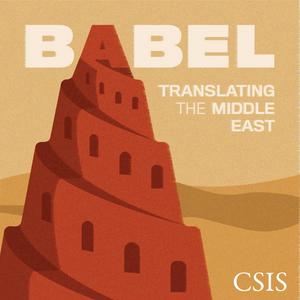This week on Babel, Jon Alterman speaks with Dr. Mohanad Hage Ali, deputy director for research at the Carnegie Middle East Center in Beirut. Mohanad's latest paper for Carnegie investigates the rise of a new form of drug smuggling in Lebanon. Together, they discuss Hezbollah’s involvement in these drug networks, as well as the opportunities to bolster Lebanese sovereignty and state institutions as a result of the group’s weakened standing. Then, Jon continues the conversation with Mona Yacoubian, the CSIS Middle East Program's new director, and Asher Grant-Sasson to discuss the challenges the shifting drug trade poses for Lebanese stability.
Transcript: "Mohanad Hage Ali: Hezbollah and the Captagon Trade," CSIS, May 15, 2025.
Mohanad's latest work: "Double Dealers: Lebanon and the Risks of Captagon Trafficking," Carnegie, March 19, 2025.


